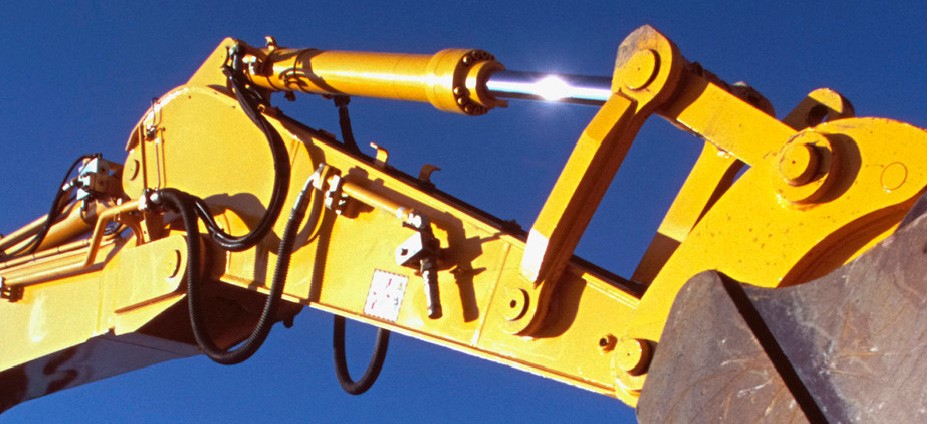About Hydraulic Fluids
Cold, pressure and temperature, but also dirt, energy consumption and viscosity. When it comes to choosing a hydraulic fluid, there are many different aspects to consider. Here we provide some recommendations on efficient, economic lubrication, and hydraulics that take performance to the next level.
Did you know…?
…THE RIGHT HYDRAULIC OIL REDUCES ENERGY LOSS
Therefore, choose an oil with the right properties, especially in terms of viscosity. An oil with lower viscosity is easier to ‘pull’ around the hydraulic system, thus reducing energy loss and saving money. Many people choose a high-viscosity oil out of habit, but this is an area worth reflecting on to achieve improved lubrication and lower costs.
…YOU CAN ELIMINATE THE NEED FOR HEATERS IN THE HYDRAULIC RESERVOIR
A lot of technical systems are kept outside at all times of the year. For these systems, choose a hydraulic oil that can withstand low temperatures and eliminate the need for heaters in the hydraulic reservoir. Heaters use energy and are often wrongly dimensioned, thus shortening the useful life of the oil. With the right product, the systems will start even when the cold sets in. Moreover, this type of oil has a longer life and also reduces energy consumption.
…VISCOSITY IS CRUCIAL IN COLD STARTS
Hydraulic oils with too high a viscosity cause problems in cold starts. A thick oil can damage the hydraulic pump, leading to breakdowns in the worst cases. The solution is to use lower-viscosity products. These ensure a reliable start also during the cold season, they lubricate better and maintain their performance over time.
…ESTER-BASED OILS ARE GOOD CLEANERS
Dirt increases the risk of operational disruptions in a hydraulic system. Choosing ester-based oils reduces that risk. Several of these products have a cleansing effect while also preventing the formation of varnish. Another advantage is that many ester-based oils have a longer life and better lubricity than traditional mineral oils.
…CLEANLINESS REDUCES THE RISK OF OPERATIONAL DISRUPTIONS
Especially in hydraulic systems with a high turnover rate. Just a small amount of dirt being pushed through the system is enough to cause disruption or damage. Therefore, make sure the system is clean by using the right type of filter. Also, taking great care when refilling or doing anything else to the system is equally important to keep dirt out.
…SMALL AMOUNTS OF WATER CAN CAUSE PROBLEMS
It is therefore vital to keep water away from the hydraulic oil. This means keeping the water content below 200 ppm in a mineral oil. Ensure that the system has a respiratory filter with a desiccant cartridge fitted. This prevents condensation from forming, but also filters out particles that can contaminate the oil.
…ENGINE OIL CAN EVEN CAUSE DEVASTATION
Water causes problems, but engine oil is devastating as just a few drops can completely nullify the properties of the hydraulic fluid. The fluid loses its ability to separate water, which instead binds with the fluid and worsens its performance. This is why it’s essential always to use separate refill containers for different lubricants.
…DEGREASERS CAUSE PROBLEMS TOO
Degreasers can also ruin the hydraulic oil. Therefore, be sure to rinse any machine parts that have come into contact with degreasers carefully. Also, don’t pressure wash sensitive parts in a recently degreased system as this can push water and degreaser into gaps and openings and contaminate the oil.
…AN INCREASE IN TEMPERATURE AFFECTS THE LIFE SPAN
A mineral oil that’s correctly maintained – and works at a maximum temperature of 40 degrees Celsius – has a useful life of around 20 years. The useful life is halved for every ten degrees the temperature increases. So there is much to be gained by keeping the temperature down. This is most easily done by regulating the cooling with a thermostat, but also by ensuring the air or water cooling system is clean and working properly.
…BIODEGRADABLE PRODUCTS OFFER BETTER PERFORMANCE
Above all, these products have less of an impact on the environment in the event of spillage or leakage. Another advantage is that many biodegradable products offer better technical performance than normal mineral oils, as well as a longer useful life.
…H1 OILS MUST BE USED FOR CONTACT WITH FOOD
In companies that handle food, contamination is a particularly sensitive matter. There are hydraulic oils that are approved for contact with food – at levels of no more than 10 ppm. These products meet the international NSF H1 standard and are known simply as H1 oils.
…THE DIESEL EFFECT RUINS HYDRAULIC OIL
Low pressure in a system can cause a diesel effect and ruin the oil. In low pressure systems, gas bubbles can form in the oil. In the diesel effect, these bubbles then ignite and cause a micro-combustion, forming nitrogen oxides. Over time this darkens the oil, it starts to smell acrid and performs worse. Low pressure can arise if the oil is too thick, if the hydraulic pump suction pipe is under-dimensioned, or if the pump is too high up in relation to the hydraulic reservoir.
…LARGE DROPS IN PRESSURE SHOULD BE AVOIDED
Pressure drops in a hydraulic system produce a heating effect that shortens the life of the oil. A pressure drop can happen if the overflow valve is left open and the pump doesn’t work properly. This can be avoided by fitting the valve with pressure control, which will prevent it being left open and driving up the temperature. By Morten Herregården


